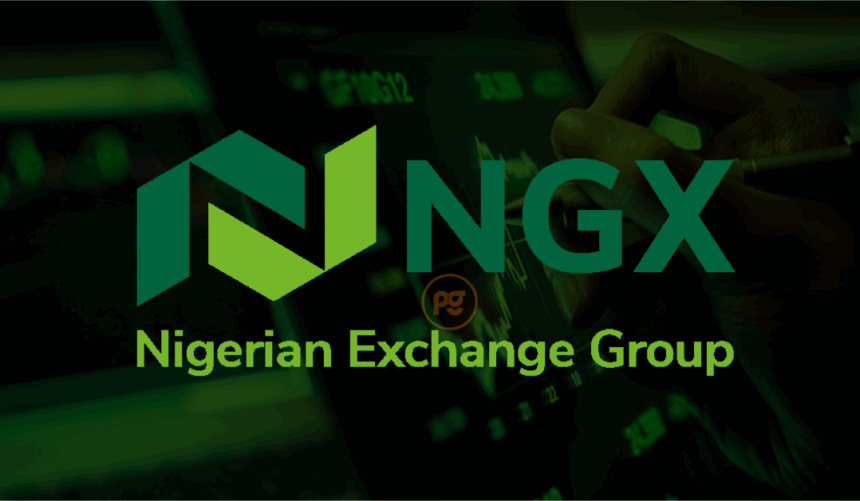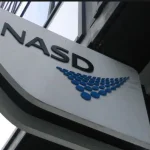In July 2025, the industrial goods sector on the Nigerian Exchange (NGX) delivered a performance that defied the broader economic narrative, emerging as one of the month’s strongest performers with a 34.3 percent gain.
Overall, the All-Share Index (ASI), which tracks the general movement of all listed equities on the NGX, increased by 16.58 percent, as market capitalization rose and investors gained N12.6 trillion in the month under review.
The Industrial Goods Index led all sectoral indices, climbing from approximately 3,638.2 to 4,885.2 basis points in July, with over 534.2 million shares traded, according to NGX data. The Banking Index followed, with a monthly gain of 22.17 percent. The NGX Insurance Index appreciated by 18.84 percent, while the NGX Lotus Islamic Index, NGX Pension Index, NGX 30 Index, NGX Consumer Goods Index, and NGX Oil & Gas Index appreciated by 16.44 percent, 14.25 percent, 11.52 percent, 9.93 percent, and 0.45 percent, respectively.
Key industrial stocks that attracted significant investor interest included cement companies such as Dangote Cement, Lafarge Africa, and BUA Cement. These featured consistently among the top performers by value traded and share price in July, appreciating by 24.3 percent, 70.87 percent, and 41.51 percent, respectively.
Other tickers in the sector also recorded notable gains. Tripple Gee, Meyer, Chemical & Allied Products, Cutix, Austin Laz, and Berger Paints saw their share prices appreciate by 88.44 percent, 64.18 percent, 31.50 percent, 18.9 percent, 13.59 percent, and 14.50 percent, respectively.
The stock market’s bullish performance occurred against the backdrop of modest real economic growth. According to the Nigerian Bureau of Statistics (NBS), Nigeria’s GDP grew by 3.13 percent year-on-year in Q1 2025—an improvement over the 2.2 percent recorded in Q1 2024.
Within GDP, the industry sector expanded by 3.42 percent in real terms, up from 2.35 percent the previous year. Manufacturing grew by 1.69 percent, with notable contributions from sub-industries: Food, Beverage & Tobacco (+3.48%), Chemicals & Pharmaceuticals (+5.33%), Cement (+4.94%), and a construction sector that grew by 6.21%.
Analysts believe the market’s performance is supported by real economic strength, with industrial equities benefiting from increased output, construction activity, and investor recognition of growth potential.
They are optimistic that the pricing of the index reflects anticipated gains from infrastructure projects, government reforms, or a projected recovery in cement demand. While current GDP figures indicate a moderate industrial contribution, the equity surge appears to be based more on forward-looking expectations than on present fundamentals.
Managing Director of Global View Capital Limited, Kebira Aruna, noted that unlike other sectors, manufacturing suffered in 2024 due to high fuel prices, a volatile dollar rate, and limited access to foreign exchange—factors that hampered full capacity utilization. He explained that under IFRS standards, companies with foreign facilities were required to disclose and write off valuation differences in their profit and loss accounts due to the devaluation of the local currency.
“But in 2025, the naira has been more stable, and other macroeconomic indicators are positive. Every result released in 2025 is better than in 2014. Remember that the losses reported in 2024 significantly depressed share prices. Because of the low base, they’ve had room to recover quickly. They’ve bounced back in both operations and earnings,” he said.
He added that favorable policies ensuring access to foreign exchange for imports have supported the manufacturing sector. “Nigeria’s oil production quota is helping to boost foreign reserves. The CBN uses these reserves to stabilize the naira and provide forex for imports.”
He further noted, “The CBN has maintained the interest rate at 27.5 percent since 2024. If they had raised it to 28–30 percent, the market would not have performed this well. Also, the DMO’s non-aggressive borrowing approach and falling interest rates—from 21 to 15 percent—have created a favorable environment for businesses.”
Managing Director of HighCap Securities Limited, Mr. David Adonri, also stated that the manufacturing sector is on a recovery path. Companies that recorded foreign exchange losses during the naira devaluation have posted a reversal of fortunes in their half-year results, released in July.
“So, those impressive results boosted investor interest in the sector, pushing its performance to a high level. That was a major factor driving July’s rally.”
He added that the NBS GDP data also played a role. “The output and income of these companies are factored into GDP. When NBS captures this and the data becomes public—being price-sensitive—it naturally attracts investor attention. Increased demand drives up prices, which we saw especially in industrial and consumer goods stocks.”
According to him, the signs of recovery had already emerged in Q2. “But when the half-year results were released, those expectations were confirmed. With renewed optimism and strong future outlooks, investors saw value and returned to the equities market.”
READ ALSO: How Nigeria’s industrial sector can compete globally – NISER
WATCH TOP VIDEOS FROM NIGERIAN TRIBUNE TV
- Let’s Talk About SELF-AWARENESS
- Is Your Confidence Mistaken for Pride? Let’s talk about it
- Is Etiquette About Perfection…Or Just Not Being Rude?
- Top Psychologist Reveal 3 Signs You’re Struggling With Imposter Syndrome
- Do You Pick Up Work-Related Calls at Midnight or Never? Let’s Talk About Boundaries







